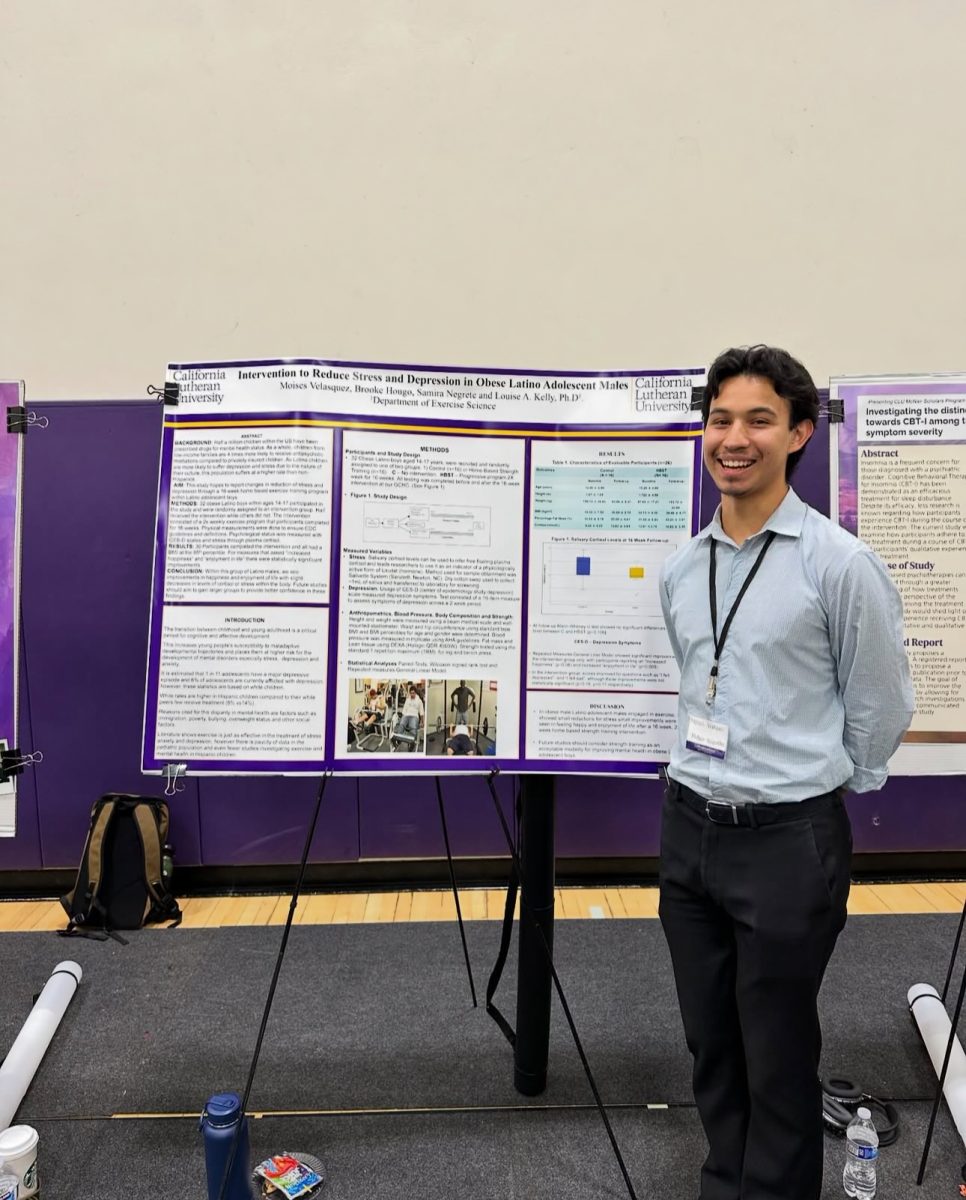Moises Velasquez, senior at California Lutheran University, has been conducting research on strength-based training and the link between anxiety and depression in Latino children.
“We’re doing [a] 16-week at-home exercise program to see if there are any effects on anxiety and depression in underrepresented communities,” Velasquez said. “In our specific [research], it’s the Latino community. The reason why we chose [Latino children] was because we also have another paper that has been published, which assessed fundamental movement skills.”
Velasquez said that the findings revealed discrepancies between children in middle school and high school led them to believe that there may be differences in physical skill sets between the two groups.
According to Velasquez, during middle school physical education, if someone is not good at a sport, they might be chosen last, and they might not want to participate, which can lead to anxiety and depression.
“With the 16 weeks, we see that even if it is at least twice a week with exercising for a minimum of an hour a day, see if there are any improvements in self-confidence and the depression scores and anxiety scores,” Velasquez said.
Velasquez said getting clearance to work with children was a difficult aspect of the research. According to Velasquez, there is not only a process with the Institutional Review Board, there also needs to be approval from the middle school, high school, and the students’ parents.
“I worked with Professor [Louise] Kelly, my faculty advisor, and she worked as the outreach part of it. So, she reached out to the schools because she has a family friend who works at one of the impoverished schools,” Velasquez said.
Velasquez said he worked with Kelly to write the application and adjust any parts for approval.
Velasquez also said he worked with Samira Negrete, a senior at Cal Lutheran, to film exercise videos. As for the actual work, according to Velasquez, they “split the work,” and each shot 16 videos for a total of 32 videos.
“We were able to have both a male and a female figure. So, if a younger girl wanted to work out, she wasn’t just looking at me and being like, ‘Oh, he’s a guy who can just do it, but there’s also a girl instructor who can do it,” Velasquez said.
According to Negrete, they began the videos with shorter repetitions and higher sets. As they got closer to the 16-week mark, they started increasing to longer repetitions, shorter sets and less time between each set of rest.
“Going through the exercises, we made sure to leave little words of encouragement,” Negrete said.
According to Negrete, there were 43 participants, all of whom were in high school between 14 and 18 years of age and of Latino descent.
Negrete said she hopes to impact these 43 participants positively.
”If you are first generation… there is a lot of pressure on those students,” Negrete said. “Some are having to deal with depression and anxiety and not having an outlet for it. So, our goal is to see if these exercises keep them active and with words of encouragement, hopefully improving the state that they’re in.”
Velasquez said that growing up, he went to predominantly Hispanic schools that were federally funded, and lacked many resources available at other schools; however, this did not stop Velasquez from joining the track and field team in high school.
According to Velasquez, being a part of the team and seeing more of the Hispanic community made him feel more included.
Velasquez said the importance of being involved in sports and physical activity in low-income areas.
“You can try and teach students on how to deal with anxiety and depression and confidence issues while also improving the status of schools,” Velasquez said.
Velasquez will be presenting at the Festival of Scholars on April 30 on previous research, “Comparison of Fundamental Movement Skills between Hispanic and White Elementary School Children.”







